‘A vicious cycle’: Aid, homophobia, and belonging, through the eyes of three gay men in Uganda
- From police raids, to jail sentences, and to having their faces plastered all over national television, these men tell us the future they envision for LGBTQ+ people in Uganda and what Pride means to them,

In May this year, the parliament of Uganda passed another controversial bill that criminalized same-sex relationships and sex work.
The bill which stipulates a five-year jail term for anyone guilty of same-sex acts is further sending many members of Uganda’s marginalized queer community into hiding.
For pride month in June, we met up with three gay men in Uganda who even though confronted with bills like this and often violent homophobia continue to live proudly.
This photo essay was produced in partnership with Anthony Atiko, Josh Tigarson, and originally appeared in a condensed form on our social media platform.
Ssenyonga Ronald (21)
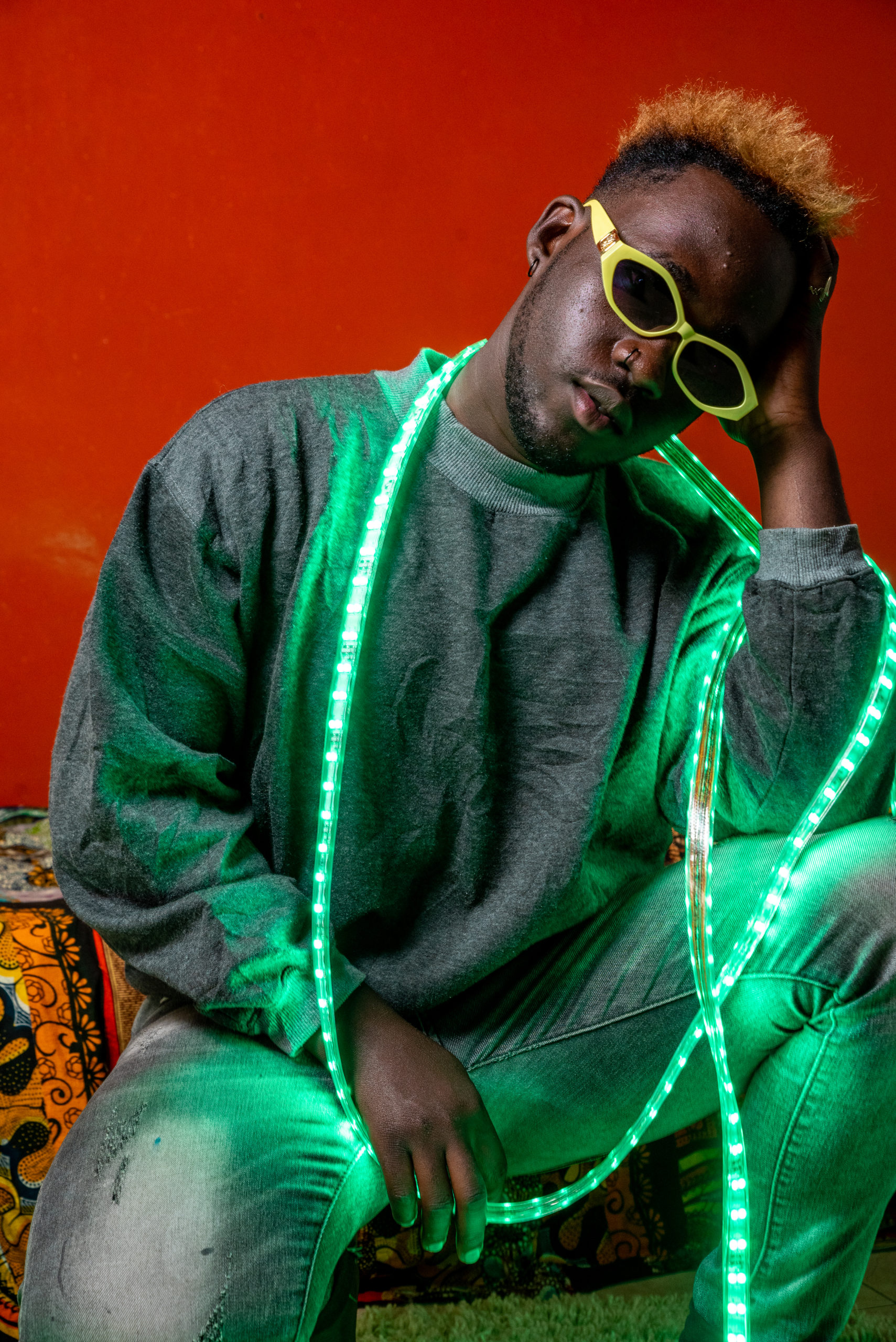
I think I always knew I was gay. I remember a day back in primary school, we had Physical Education, and the teacher asked us to make a big circle while holding each other’s hands. The person next to me was a boy and I was scared, I didn’t want to hold him. Later I understood that I was afraid because I liked boys.
In high school, I tried my best to fit in. I had girlfriends, and I even believed I was in love with them.
It was only in 2019 that I really came to terms with my sexuality. I made a Facebook account and I started seeing other people who were out. I met some friends who started educating me about the LGBTQ+ community.
Later that year, I had my first experience with a guy. We started chatting online, after a while he started coming to my house. My mom thought we were just guy friends hanging out, she had no idea about the butterflies in my stomach.
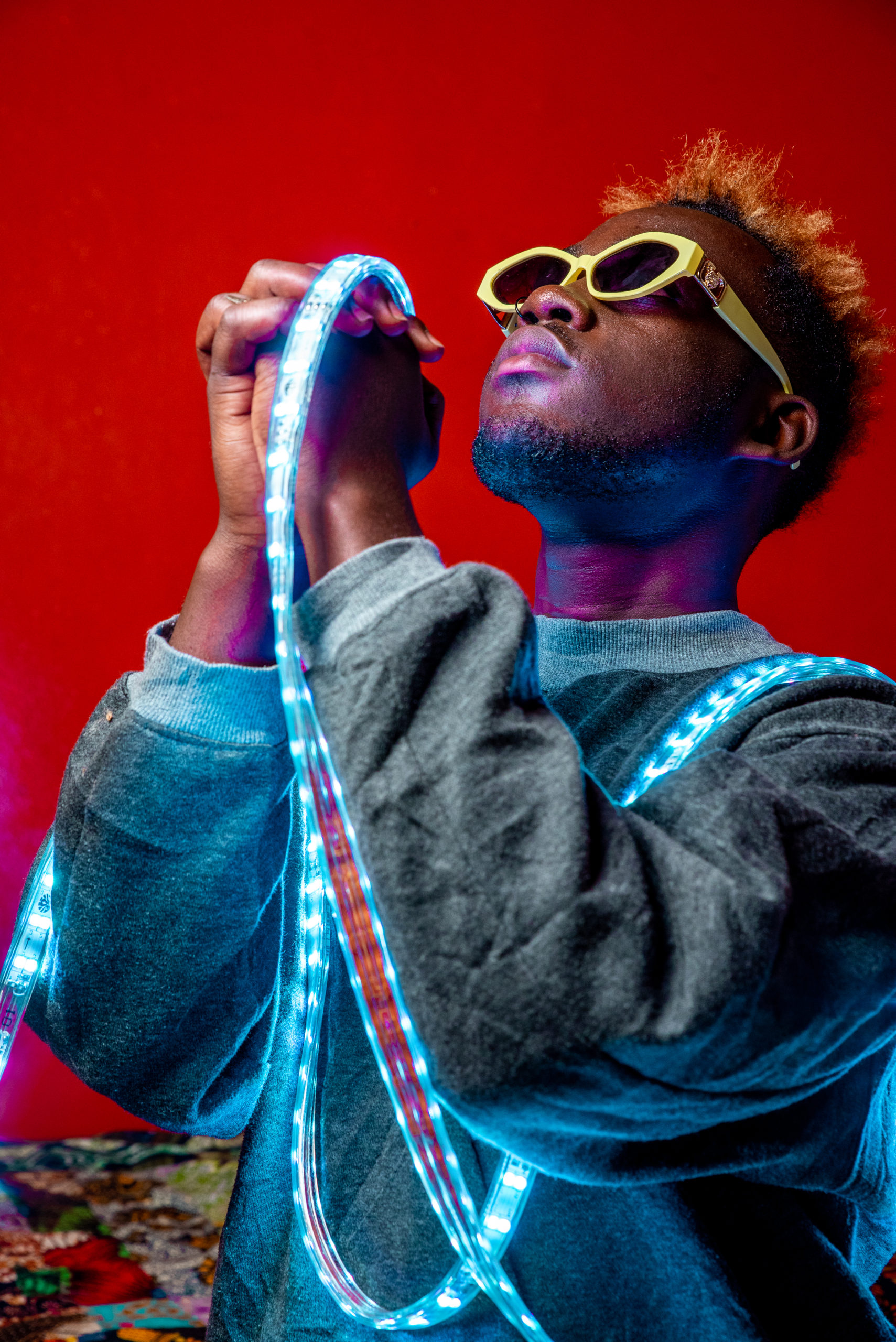
A little after that I learned about an LGBTQ+ organization in Kampala, and I joined. That’s where I first met people like myself in real life. Before that, I was always a loner.
It is hard having to hide who you are. Sometimes, when I was talking to one of my straight friends, a feminine gesture would come out of me without realizing it. They would look at me funny and I would laugh or change the subject to get out of it.
Now, I finally had a group of friends to hang out with who understood me. They talked like me and dressed like me. I could finally be myself, I no longer had to hide behind a masculine masquerade.
Unfortunately, not much later the shelter was raided, just when I was there visiting a friend. The police humiliated us and physically abused us. Everything was filmed and broadcasted on national television.
I was one of the headliners, my face was shown everywhere. I lost a lot of friends after that. Most family members didn’t want to talk to me anymore, and I lost my job. I was working in a photography studio at the time; it was my dream. My boss was afraid he would lose customers if he kept me on.
My mom asked me to leave the house, she is a big person in church, so she has a reputation to keep up. We still talk on the phone. I understand her, it wasn’t easy, with everyone in the neighborhood looking at us. She had to protect her family. My sisters accept me the way I am, and that makes me hopeful of the younger generation that follows us.
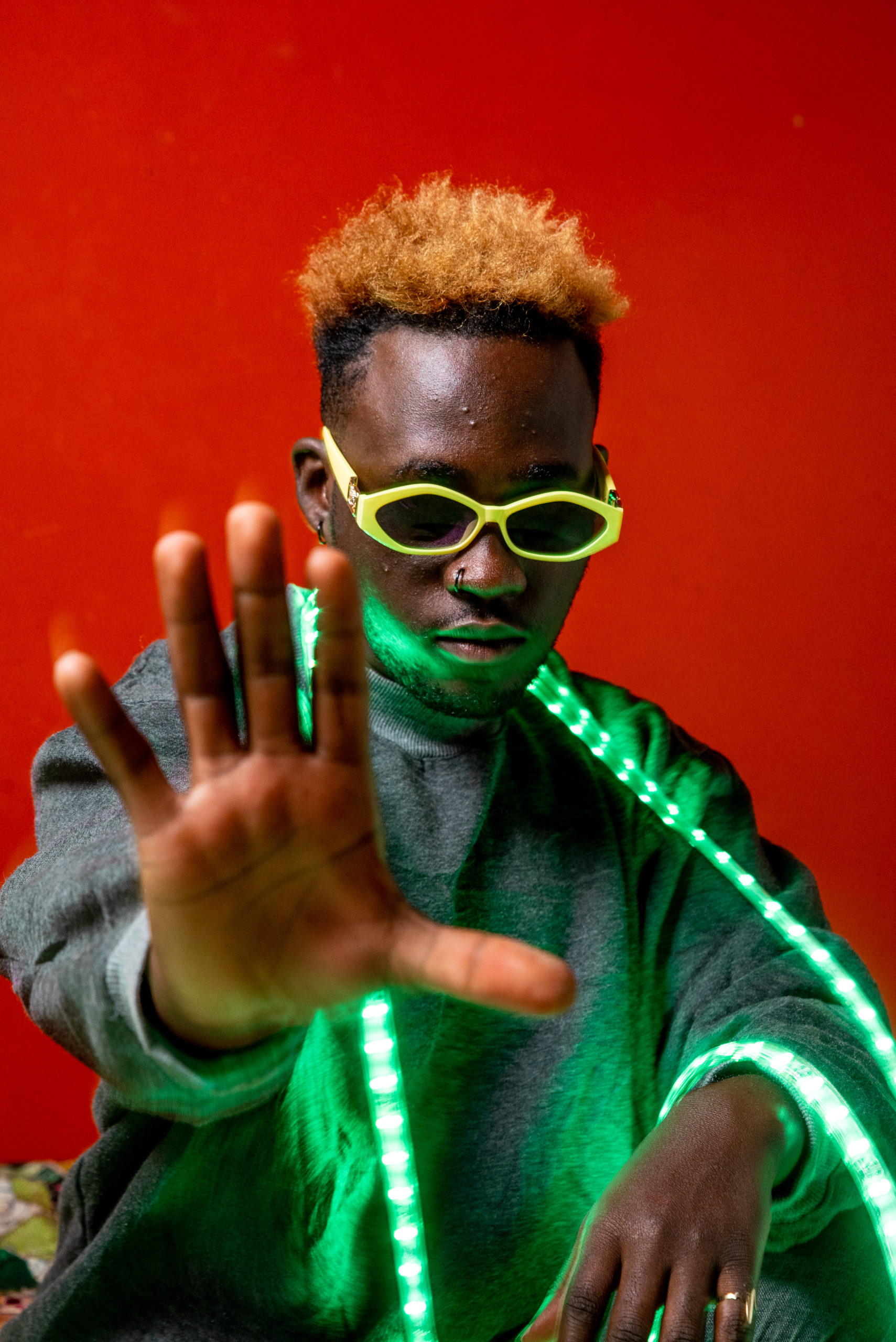
Growing up in Nansana, Kampala, I had what you could call a regular childhood. My dad was an engineer and my mom owned a saloon. I have 4 siblings, I’m third in line.
Things [at home] changed when my father got sick and passed away. My mom became depressed and lost her salon. She couldn’t take the burden of taking care of the family all by herself.
My dream is to become a famous activist, like Todrick Hall, and help young queer people to empower themselves. Today, you see many gay people coming out on social media and being their selves. I love to see these very feminine guys being so popular on TikTok. Everyone loves them, I want to have a reach like that one day.
I think Pride Month is a time for LGBTQ+ people to celebrate each other and their sexuality. You see these people in western countries coming out in the streets, showing people their full reality. They do it publicly without anyone stopping them.
I think it’s great because if they don’t do it, no one else will do it for them. Unfortunately, here in Uganda it’s not possible. They tried it in 2016, but the police came and arrested people. One day I hope to live somewhere in the United States, settle down with someone and live a peaceful life. Maybe there I can celebrate Pride as it should be.
Ndawula Shedrack (21)
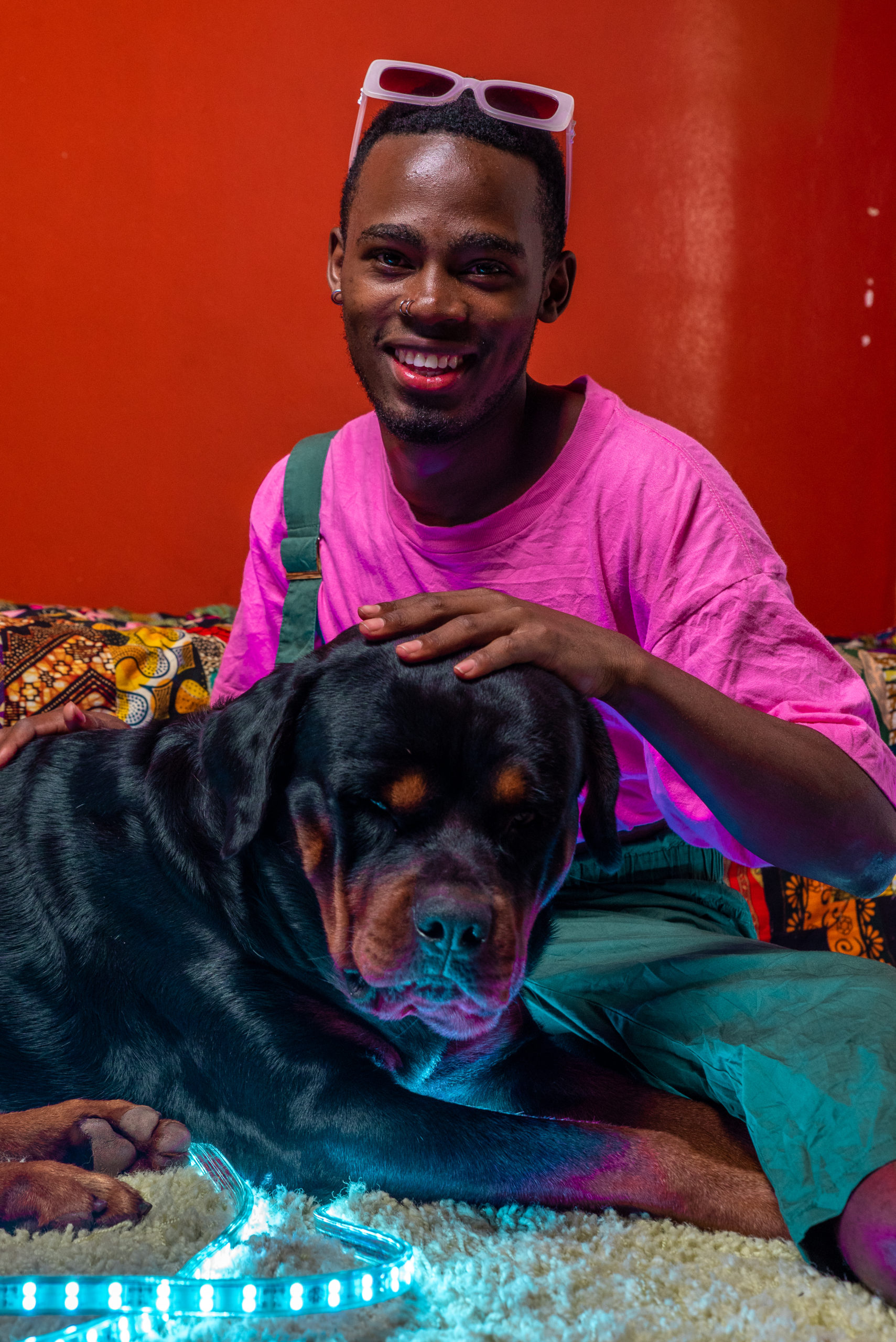
My comfortable life as I knew it changed in 2019, when the police raided a gay party I [was] attending. The police arrested 127 people, of which 67 were charged. Sadly, I was one of them. I spent 10 days in prison, and the only people I could think of to bail me out were my parents but facing them was even scarier.
My parents are from a village in the Central Region but came to Kampala to pursue their dream as thriving business owners. My dad owns a hardware store and my mom a produce store. So, it was only right that I would go to Business School at Makerere University, one of the best schools in the country. My dream is to be an account manager at a bank. I would invest all the money I make to help people in need.
I had realized that I was gay two years before that. My friend’s cousin was gay, and he had a DVD with gay porn. My friend wanted to watch it for fun, but I was incredibly turned on by it.
My mom came to pick me from prison and took me home. That’s when the harassment started.
My parents were filled with anger and shame. They never even let me explain what happened. It was said on television that we were prostitutes, so that’s what they believed. My family told me again and again that I engaged in satanic acts, which traumatized me and caused sleepless nights.
I wasn’t allowed to interact with my brothers, they said I’d turn them gay as well. They wouldn’t share meals with me or sit at the same table then me, they looked at me as if I was evil.
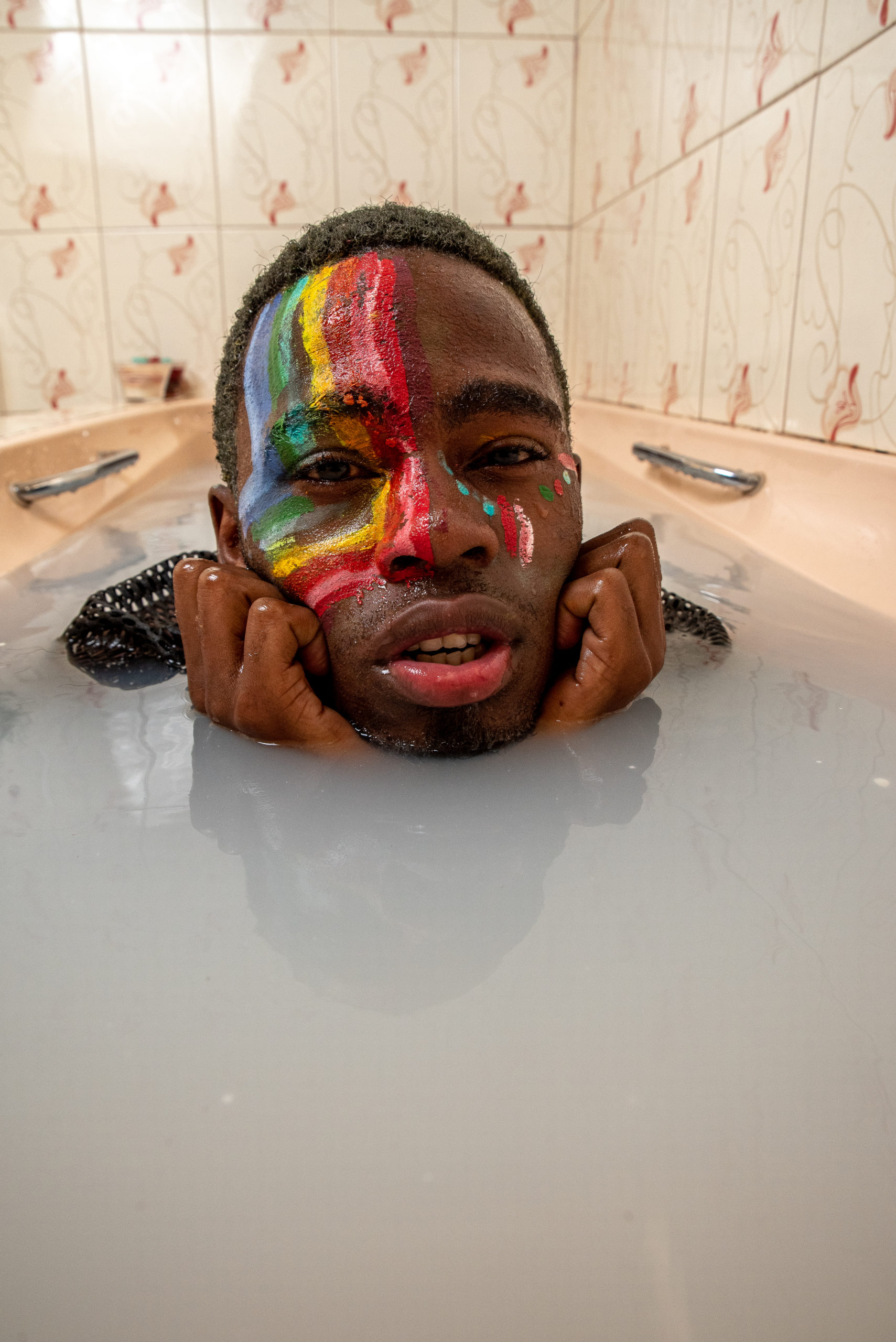
Before I used to date girls, but I never had sex with them, whenever they tried to touch me, I would make up an excuse. Now I understand why. Although I would think about trying it out [with men] one day, I was afraid.
I had heard stories that if men have intercourse, your opening will become very wide, and you would have to wear pampers.
After my first time, I cried for two days straight. Eventually, I realized I was fine. I started dating guys and had some gay friends, but all of this happened in the shadows.
All I wanted was to be provided for till I would have completed university. But my parents stopped paying the tuition, they said they wouldn’t care for a gay child’s education. I finally ran away from home and started staying with a compassionate friend who helped me get back on my feet.
I knew that I had to make it on my own. I tried to provide for myself for a while, I started operating a mobile money [business], but I could never make enough to pay school fees and survive. My biggest fear is that I will never be able to finish university.
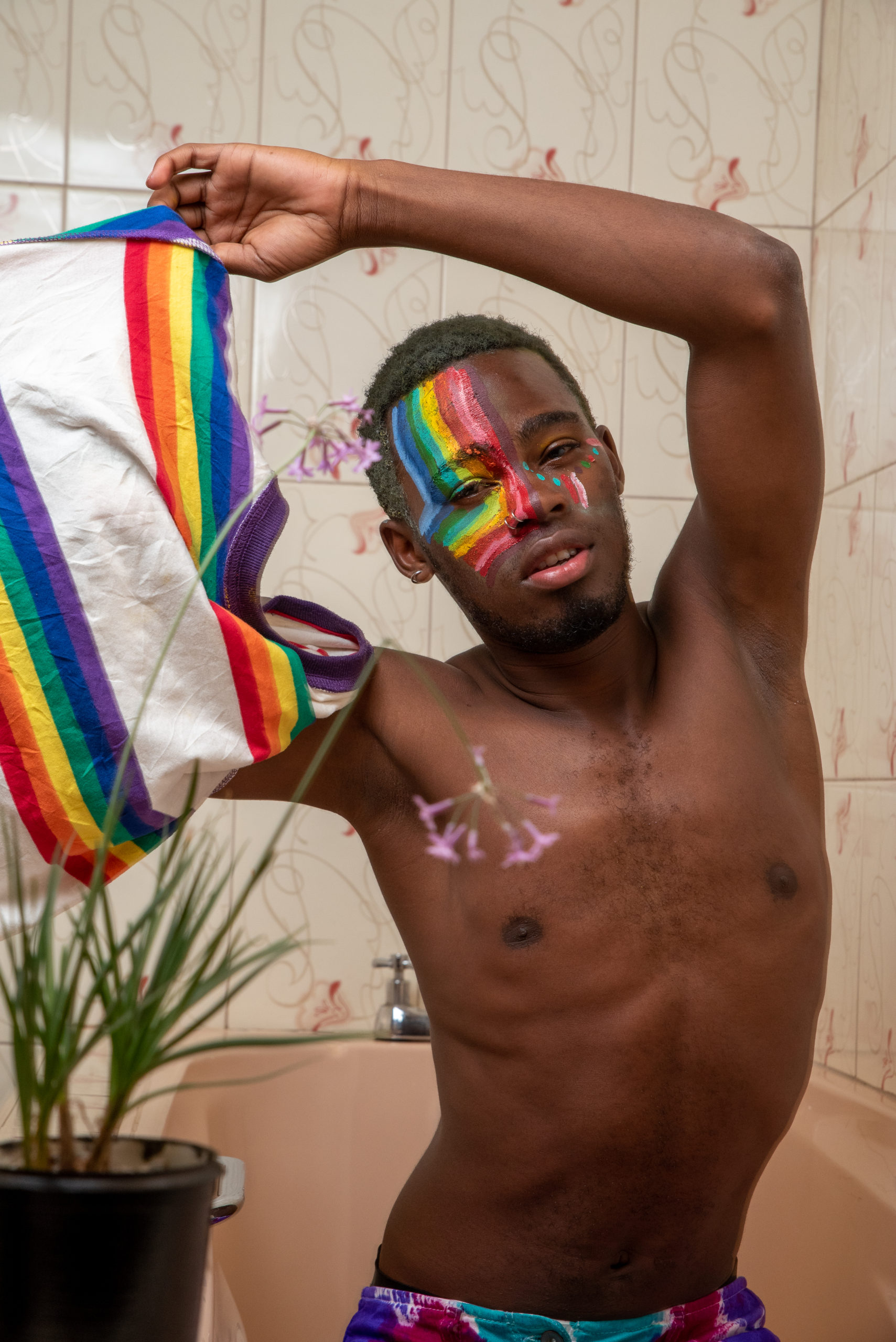
At a certain point, we were staying with four boys at my friend’s place, in a very small room. It was uncomfortable and the neighbors started to complain as well.
I found an older, married man who wanted to take me in as a houseboy. I didn’t like him, but he gave me food and shelter. I would cook and clean for him, and when his wife was away, he demanded sex. Sometimes he brought other men over and then I would have to serve them.
It is hard to find a decent job in Uganda as a gay man because people will start to notice your feminine mannerisms and will start to talk. Right now, I am staying with two friends and we are surviving on the income of one of them who is doing sex work to survive. But at least we have each other and they are my rock.
The hardest thing for me is not talking to my mother. She is my role model, she’s a strong woman and she worked so hard for me to become someone. She had big dreams for me, and I let her down. I just hope with time she will understand, and I can make her proud.
Kelvin Kugonza (22)
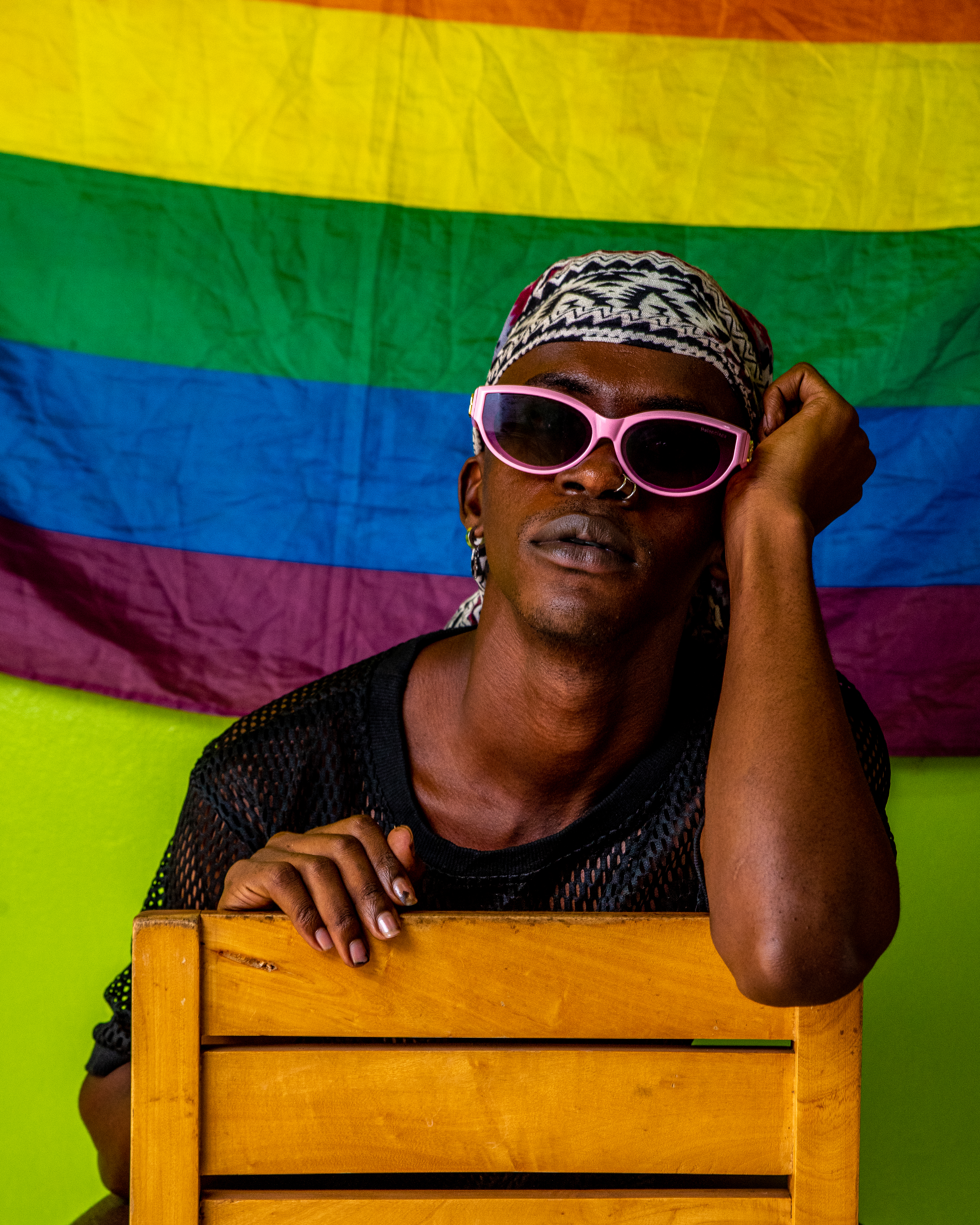
[When] I was 15 I [joined] secondary school in Fort Portal. It was there that I first started realizing that I liked boys. In boarding school, all the boys would shower together and change in front of each other.
I realized that I felt attracted to them and when I would get a [moment alone], I would touch myself while thinking about their naked bodies. Afterwards, I always felt horrible, I thought there was a problem with my brain, that something must be seriously wrong with me.
When I was 17, I got my first phone and created a Facebook account. I don’t know how they do it, but when you are gay and you’re on Facebook, other gays come to you like a moth to a flame.
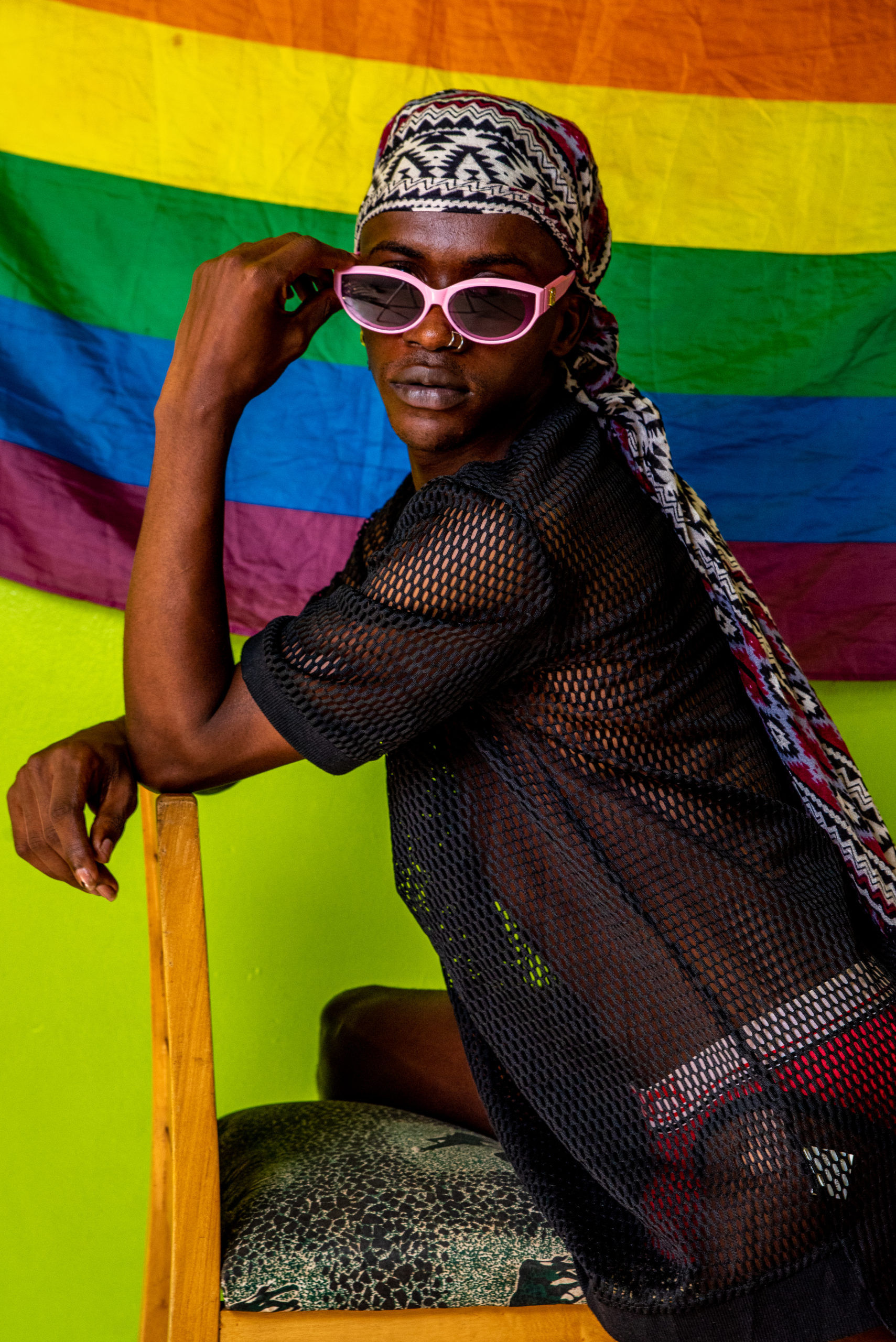
At that time, I was in Kampala, at another boarding school my father had sent me to. I liked that school; I was very popular. Everyone knew me, boys and girls. It was there that I got my first boyfriend, although we didn’t define the relationship at the time.
He was the one pursuing me. It was all very playful, he would slap my bum when no one was looking, or hug me from behind when I wasn’t paying attention.
One day he asked me if I wanted to take it to the next level. I didn’t know anything at that time, I never actually met another gay person. He said he could teach me everything and he convinced me to go to the bathroom with him. It was all very exciting, but I felt very embarrassed afterwards, I didn’t speak to him for a week.
After a week, things went back to normal, and we would find ways to sneak around and make out with each other. One day we made a plan to skip class and stay behind. When everyone had left, we started kissing, but I guess we were a bit too excited, because we never heard the warden coming.
The next day, they called our parents. My dad was in town and came to pick me up. He didn’t say a word, he’s a very introverted man. The next day he gave me some money for transport and told me to go back to my grandmother in the village.
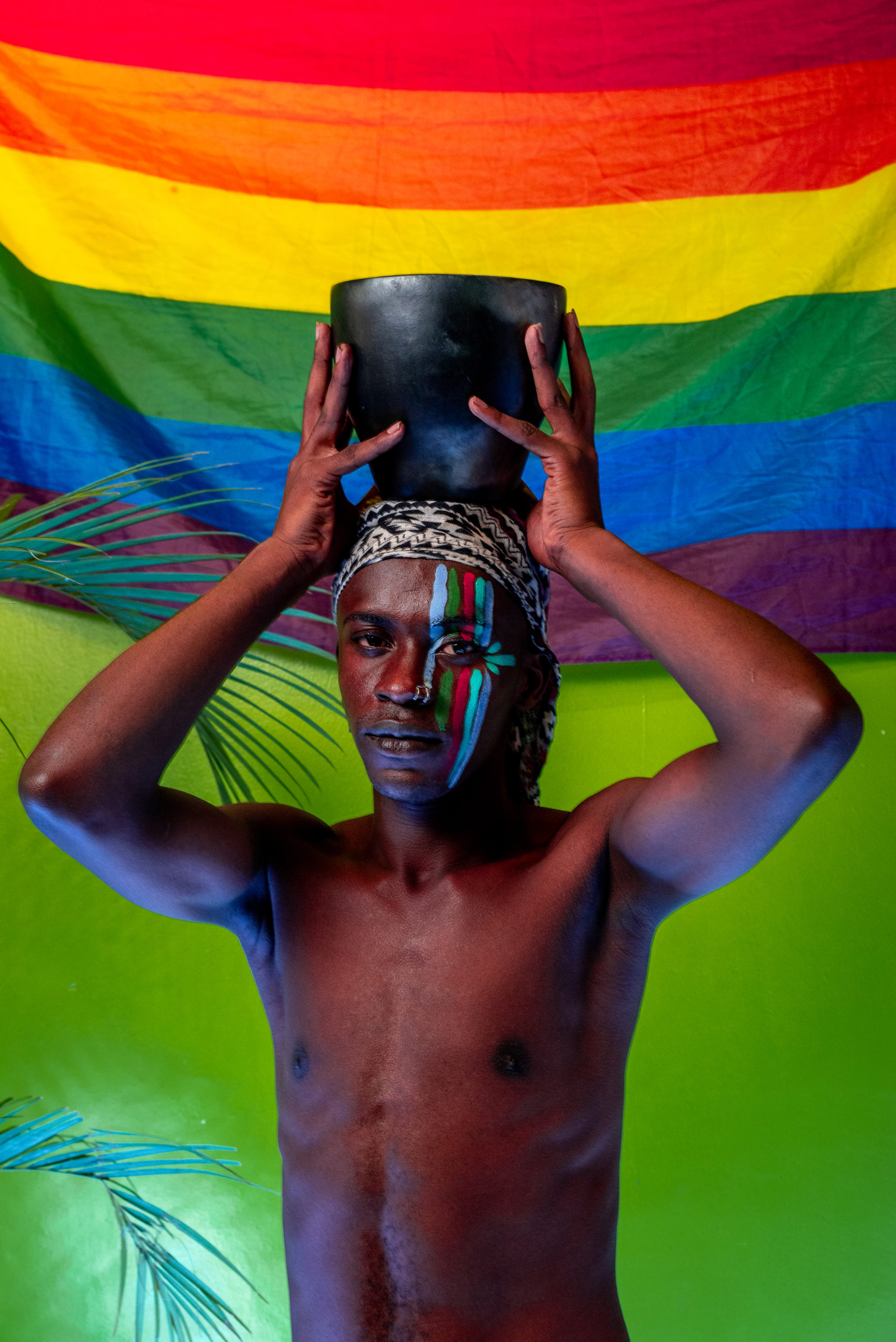
I didn’t stay long in the village. By the time I arrived there, everyone already knew what I had done. Everyone looked at me sideways and some people harassed me on the streets.
By that time a friend of mine told me about LGBTQ+ shelters in Kampala where you could stay for free. At first, I thought it was a great opportunity, but I learned quickly that life at the shelter is hard. We used to eat one time a day only. I worked in an electronics store for a while, but the money was just about enough to pay for the transport.
Some of the guys came with money and they were eating well. I learned that they were doing sex work. I didn’t see any other option than to start doing that as well to survive.
In March 2020, the shelter got raided. I and 19 others spent 52 days in jail where we were treated worse than animals in a slaughterhouse. When they released us, an NGO helped us pay for three months of rent. After that, I found myself on the streets with nowhere to go.
I couldn’t go back to the shelter because it didn’t feel safe there anymore. I had trauma from what had happened there. No one wanted to hire me, everyone saw the headlines on television. I ended up finding a small room where I stayed with three of the other guys on one mattress on the floor. The little food we could buy came from my income as a sex worker. My friends are my family; I would do everything for them.
My dream is to start my own organization. I want to help queer people to find a job and empower themselves. I don’t think that anyone should live as I did in the shelter. It’s a vicious circle, you become dependent, and you have no more power over your own life. The people on top benefit from you being there because they get funds from Europe and the U.S., yet we never see that money. I hope to change that one day.
Mari Goossen is a journalist from Belgium.
Anthony Atiko is a freelance photojournalist from Uganda.






